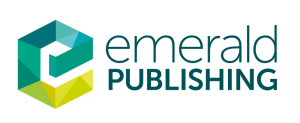
Applications Accepted Jan 1 – Feb 2, 2025
The application window for the 2025 cycle has closed
👉🏻2025 Winners Announcement 👈🏻
RRBM Dare to Care Dissertation Scholarship Awards are for emerging business and management scholars who demonstrate an exceptional commitment to responsible research that matters to society in their doctoral dissertation research. Doctoral students selected as Dare to Care Dissertation Scholars in the 2025 award cycle receive financial support in the form of a scholarship of $10,000 as well as intellectual support from among the community of RRBM scholars. In addition, they become part of the college of active Dare to Care Dissertation Scholars who continue to learn with and from one another as they shape the future of business and management research to take on the grand challenges of our world.
Eligible Research Topics and Methods
The Selection Committee welcomes dissertation research that meets the following criteria:
- The dissertation research will generate knowledge or ideas to reduce inequality or promote social justice, especially focusing on the role of business organizations. Topics may include but are not limited to: income inequality; racial or gender equity; equal access to resources and opportunities; stakeholder well-being; etc. Research that contributes to meeting one or more of the social or economic dimensions of the United Nations’ Sustainable Development Goals are of special interest to this dissertation scholarship program.
- Has a clearly stated research question accompanied by a well-developed and rigorous methodology to address the research question. The use of multiple methods is encouraged, including qualitative (case studies, observations, text analysis), quantitative (surveys, archival empirical), and experimentation (lab and field), as explained in the principles of responsible research.
- Applications will only be considered if the proposed research can provide actionable knowledge or ideas that firms or managers can use to develop policies or practices aimed at reducing economic and social injustice.
The Selection Committee is particularly interested in dissertation research that:
- Is inter-disciplinary and involves stakeholders in the research process, as described in Principle 5 of the seven responsible research principles.
- Incorporates intervention field studies, using randomized controlled trials (RCT) that robustly test theory-informed ideas/treatments (actions, policies, programs) to address the aforementioned justice issues at the individual or collective levels.
The Eligible Applicant
- Is a doctoral candidate enrolled in a business school in any of the disciplines as long as the research falls within the domain of the eligible research topics noted above.
- Is at the beginning stage of the dissertation research with a clear research question and a well-developed methodology proposed to address the question. Generally, such individuals will have already passed any qualifying exams applicable to their program.
- Demonstrates a commitment to the RRBM Principles of Responsible Research through (a) RRBM engagements (e.g., as an endorser of the position paper, an attendee of RRBM webinars, or through other engagements) and (b) a statement on alignment with responsible research principles submitted with the application materials.
The Application & Proposal Content
Applications will be accepted online at www.rrbm.network/daretocare beginning January 1, 2025 and must be received by February 2, 2025.
To be considered, applications must include each of the following four components. Specific requirements for each component are forthcoming.
- A research proposal
- The applicant’s CV
- Completion of the online application form
- Completion of an online recommendation form by two references (must be received by Sunday 9 February, 2025, end of the day)
Recommended Preparation
We recommend reviewing the reading materials listed in the syllabi for the Philosophical Foundation of Responsible Research course. While the course will not be offered in 2024, past syllabi remain available for reference. Click here to register to be notified of new course information once available. Participation in this course is not a requirement to apply for the scholarship.
You may also find a range of helpful online events offered through the RRBM community.
Evaluation of Proposals
Candidates will be evaluated on the strength of their research proposals and alignment with the award criteria. In addition, candidate proposals will be evaluated using the Seven Principles of Responsible Research, ensuring that the proposed research meets the standards of high relevance to the research domain specified in this program and strong methodological rigor with promise of credible findings.
Award winners will be announced May 1, 2025.
Information Sessions
Prospective applicants are highly encouraged to view these Scholarship Overview Slides for general information about the scholarship, and to watch the Application Development Information Session recording for insights on submitting a successful application.
Frequently Asked Questions:
Answers to some frequently asked questions are provided below and will be updated periodically. Additional inquiries regarding the Dare to Care Dissertation Scholar Awards may be directed to info@rrbm.network.
-
-
-
- Who is qualified to apply?
Only students enrolled in doctoral studies within the field of business are eligible. This can include doctoral students within business schools or doctoral students within the business unit of a university (e.g., management, marketing, or accounting departments). Students enrolled in other social sciences (e.g., psychology, sociology, political science, economics) are not eligible for this award. - I will have already conducted some of my research at the time my application is submitted. Am I eligible to apply?
The scholarship is intended to support doctoral candidates. Students who have finished their doctoral studies (i.e., PostDoc) cannot be considered for this specific scholarship. Ideally, candidates should be at the beginning stage of the dissertation research when the scholarship is awarded. Such applicants will generally have completed any required qualifying exam and/or defended their research proposal, as applicable. As highlighted elsewhere in these FAQs, eligible research should be empirical, and the scholarship is intended to cover the cost of collecting such empirical data. Doctoral students in a later stage can apply, mainly if their thesis is based on multiple papers and if the scholarship money is intended to be used for data collection supporting one of these papers. - Is there an expectation that the research addresses these topics through a lens relevant to the role of business organizations?
Yes, the goal of the research is to generate knowledge that organizations, especially business organizations, can potentially use to address injustice in various forms. This is consistent with the focus of the UN Sustainable Development Goals (SDGs), which consider business organizations as having the opportunity and obligation to implement the SDGs. - Do I have to take the Philosophical Foundations of Responsible Research course?
No, the course is highly recommended as a means to gain familiarity with the philosophy of science and responsible research principles; however, participation in the course is not required for prospective applicants. Prospective applicants who are unable to take the course are encouraged to review the readings included in the course syllabus and/or look for other resources on these topics, including the many webinars offered by RRBM. - Does the research have to be empirical?
Yes, RRBM believes it is critical for claims to be supported by credible empirical evidence. A project that uses published empirical evidence (quantitative or qualitative evidence) is potentially acceptable. We give preference to original studies on a contemporary problem. - Is a dissertation consisting of multiple papers acceptable?
Yes, this model is acceptable as long as one of the papers includes empirical tests of a topic relevant to this scholarship program. We encourage applicants to orient their scholarship application around the one paper that is most relevant to the scholarship criteria. - Can I send a brief writeup of my topic to check if my topic is suitable?
Yes, you are more than welcome to send a one-page proposal idea to scholarship@rrbm.network and we will let you know if the topic is suitable for this scholarship focus. Please allow up to two weeks for a response. - Will I have a mentor to help me?
We cannot guarantee this but it is our plan to identify mentors for some of the scholarship recipients, if there are mentors who are interested in the topic. - Do my two references need to submit their reference form by the Application submission deadline?
Application forms must be submitted by the scholarship deadline. Reference writers will have a few additional days to provide their input. Additional information about this window will be available within the application guidelines. Applications and reference forms must be received by their respective deadlines in order to be considered for the award. -
In their proposals, applicants are asked to briefly describe the greatest areas of need in terms of financial support. If I do not require additional funding to complete my dissertation research, am I ineligible?The Dare to Care Dissertation Scholarship is a merit-based scholarship intended to recognize and support emerging business and management scholars who demonstrate an exceptional commitment to responsible research that matters to society in their doctoral dissertation research. We recognize that “need” is subjective and can be manifested differently across applicants. Some applicants will use funding in direct support of their research (i.e., for data collection and/or analytical support), others will use the funds in ways that enable time to focus on their work (i.e., course offloads, childcare, etc.), and still others may use the funds toward their own continued learning and development (i.e., travel costs and/or fees to participate in disciplinary conferences, courses, or workshops). All are valid uses of the funds from this scholarship; your response on this question helps us to understand and communicate the ways in which the funding dimension of the scholarship impacts its recipients. If an awardee is fully funded, he/she may donate the scholarship funds to the Dare to Care fund to be used for future awardees while continuing to receive the recognition and intellectual support available to awardees.
- What is the reviewing process of the applications?
The reviewing process involves the following stages: 1. Applications will go through a basic eligibility screening (business school affiliation, stage in doctoral program, and a complete application). 2. The applications will go through a second screening for topic eligibility. 3. Applications that pass the two initial screenings will receive a detailed review by a committee of senior scholars. 4. Those applications with the strongest ratings after this review will be further reviewed by the selection committee for final decision.
- What topics are most suitable for this scholarship?
- Proposals that provide actionable knowledge or ideas that firms or managers can use to develop policies or practices (i.e., the independent variables)
- Proposals that focus on any of the following as outcomes (dependent variables):
- Economic justice, i.e., less income inequality, living wages for lower-level employees.
- Social justice, i.e., less inequalities related to race, gender, socioeconomic, as well as disability-related inequalities within organizations.
- Societal or community justice, i.e., how MNCs contribute to justice in host countries such as reducing poverty or inequality, and/or improving employment opportunity, climate justice, etc.
- Topic fit must be evident for both the independent and dependent variables.
- What topics are least suitable for consideration?
- Proposals that have no direct relationship to any of the injustice outcomes.
- Proposals that focus on independent variables that are not amenable to managerial actions or not usable for informing policies to reduce injustice or improve justice.
- Proposals that focus on employees’ own actions or personality attributes that allow them to cope with injustice or to alleviate the injustice experience of others, but which do not address ideas for any organizational or managerial actions.
- Exogeneous conditions or institutional factors outside the control of management (e.g., societal culture or government policies as explanations of inequality in different regions).
- Who is qualified to apply?
-
-


